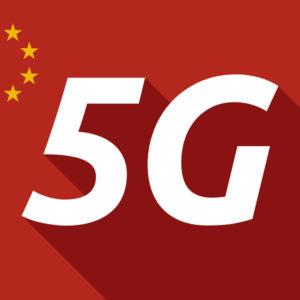Sen. Thom Tillis (R-N.C.) wants to “chop off” the “tentacles” of what he calls China’s strategy to infiltrate U.S. 5G infrastructure — but 5G and national security experts say that’s much easier said than done.
At a Senate Judiciary Committee hearing on Tuesday discussing 5G and national security concerns, senators repeated their alarm over Chinese companies providing equipment for U.S. 5G efforts, while witnesses tried to explain that some U.S. telecom companies may not have other options.
At the epicenter of their concerns is the Chinese telecom equipment provider, Huawei, considered a leader in the race to 5G. Many national security and tech experts believe Huawei’s technology is purposefully designed to allow access by the Chinese government, raising national security concerns. Last year, the Pentagon banned the sale of mobile phones made by Huawei on military bases.
Despite these concerns, many European countries plan to use Huawei infrastructure to deploy 5G. On Wednesday, President Trump issued an executive order banning American telecom companies from installing foreign-made equipment that could pose a threat to national security.
“This administration will do what it takes to keep America safe and prosperous and to protect America from foreign adversaries,” White House press secretary Sarah Huckabee Sanders said in a statement.
While the Big Four telecom companies AT&T, Sprint, T-Mobile and Verizon do not use Huawei equipment, small telecom companies do, because Huawei equipment is so cheap. Telecom is a capex-heavy industry, so for small businesses, there isn’t much wiggle room in the profit margins.
In other words, a Huawei ban could help further consolidate telecom and dampen competition by hurting the small companies.
At the hearing Tuesday, Sen. Richard Blumenthal (D-Conn.) said no one should use Huawei for economic reasons given the cybersecurity risk.
“Even if there were an economic advantage, it is outweighed by the security threat,” he said.
Christopher Krebs, director of the Cybersecurity and Infrastructure Agency at the Department of Homeland Security, told Blumenthal that if the federal government wants to tell telecom companies not to use Huawei, then telecom companies need more vendor options.
He called 5G a “global supply chain challenge,” mainly because there are only three vendors for wireless infrastructure: Ericcson, Huawei and Nokia.
“I think the concern is, some of our partners may not have alternative economic options,” he said. “We’ve got to continue to push supply and also give them alternative options. There are only so many vendors available with so many financing options.”
Robert Strayer, Deputy Assistant Secretary for Cyber and International Communications and Information Policy at the Bureau of Economic and Business Affairs for the Department of State, said the U.S. should opt for a gradual approach to improving cybersecurity and infrastructure integrity for 5G.
“We’re not asking [telecom companies] to rip it out of the ground today, we’re saying, find a pathway to make yourselves secure [economically and for national security],” he told senators at the Tuesday hearing.
Krebs added that the U.S. won’t necessarily “fall behind” in the 5G race by not using Huawei equipment because Huawei equipment isn’t very high quality.
“You have to look at the total life-cycle cost,” he said. “The quality of the products is not great, the existence of vulnerabilities…the ability to understand what’s happening on the network is just not there.”
But none of the witnesses provided a solution to the problem of addressing national security concerns while also encouraging competition and innovation in an already heavily-consolidated telecom industry, other than gradually weaning U.S. companies off Chinese equipment providers and investing in research and development.
“This is the new cybersecurity, supply chain risk management,” Krebs said.
Peter Harrell, adjunct senior fellow at the Center for New American Security, told senators near the end of the hearing that “transitioning supply chains can take significant time,” and Trump’s trade war isn’t helping. To adequately address 5G concerns, then, may require a significant policy shift in the administration.
“The U.S. will not benefit if China retaliates for the latest tariffs by further discriminating against U.S. companies that make key 5G technologies and sell them into the Chinese market, and China has announced plans to retaliate for President Trump’s tariff hike,” Harrell said. “The Trump Administration needs to tread cautiously in its just-announced tariff hikes on Chinese-made goods to avoid inadvertently impacting other U.S. goals, including U.S. goals related to 5G.”

